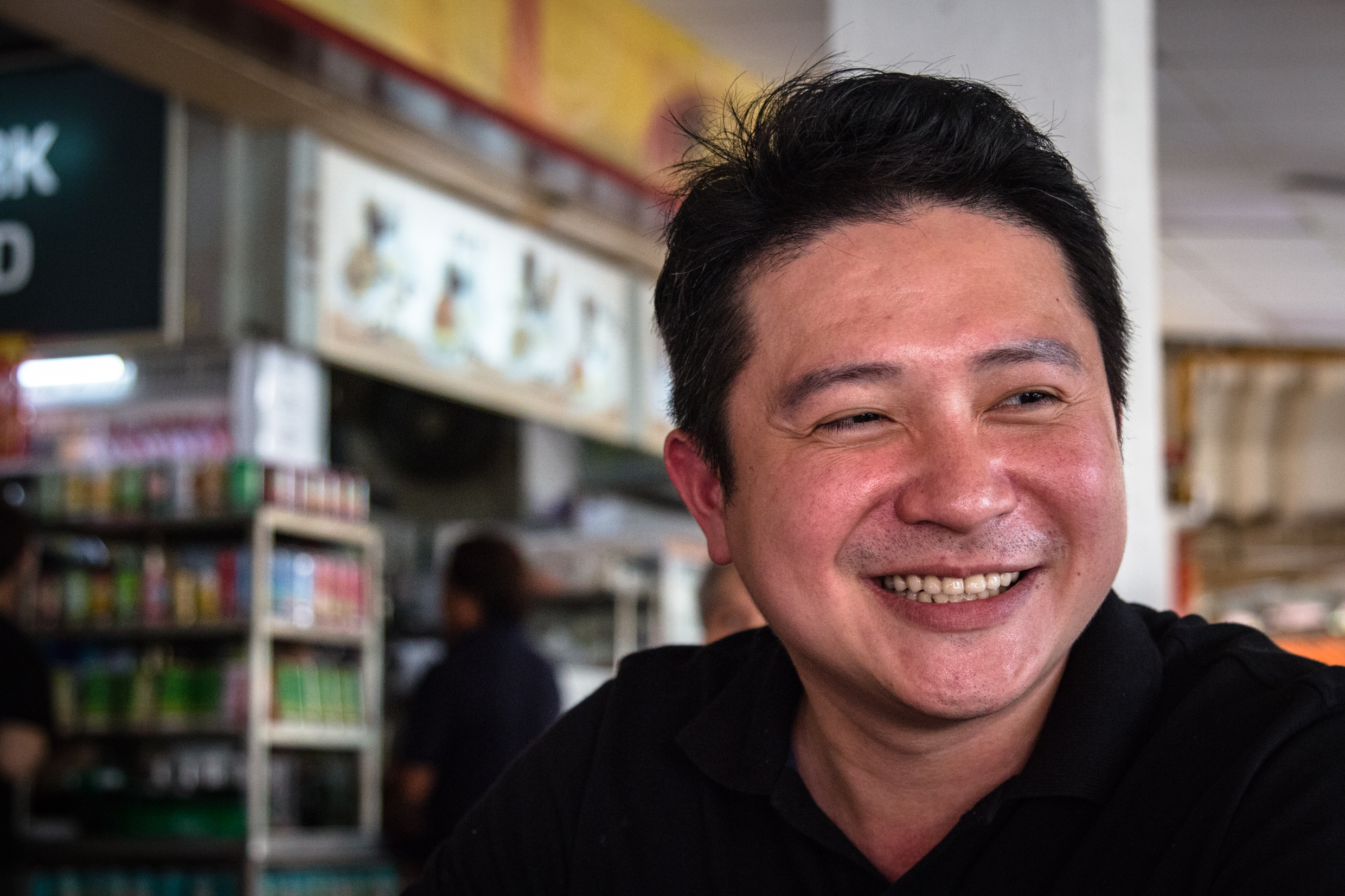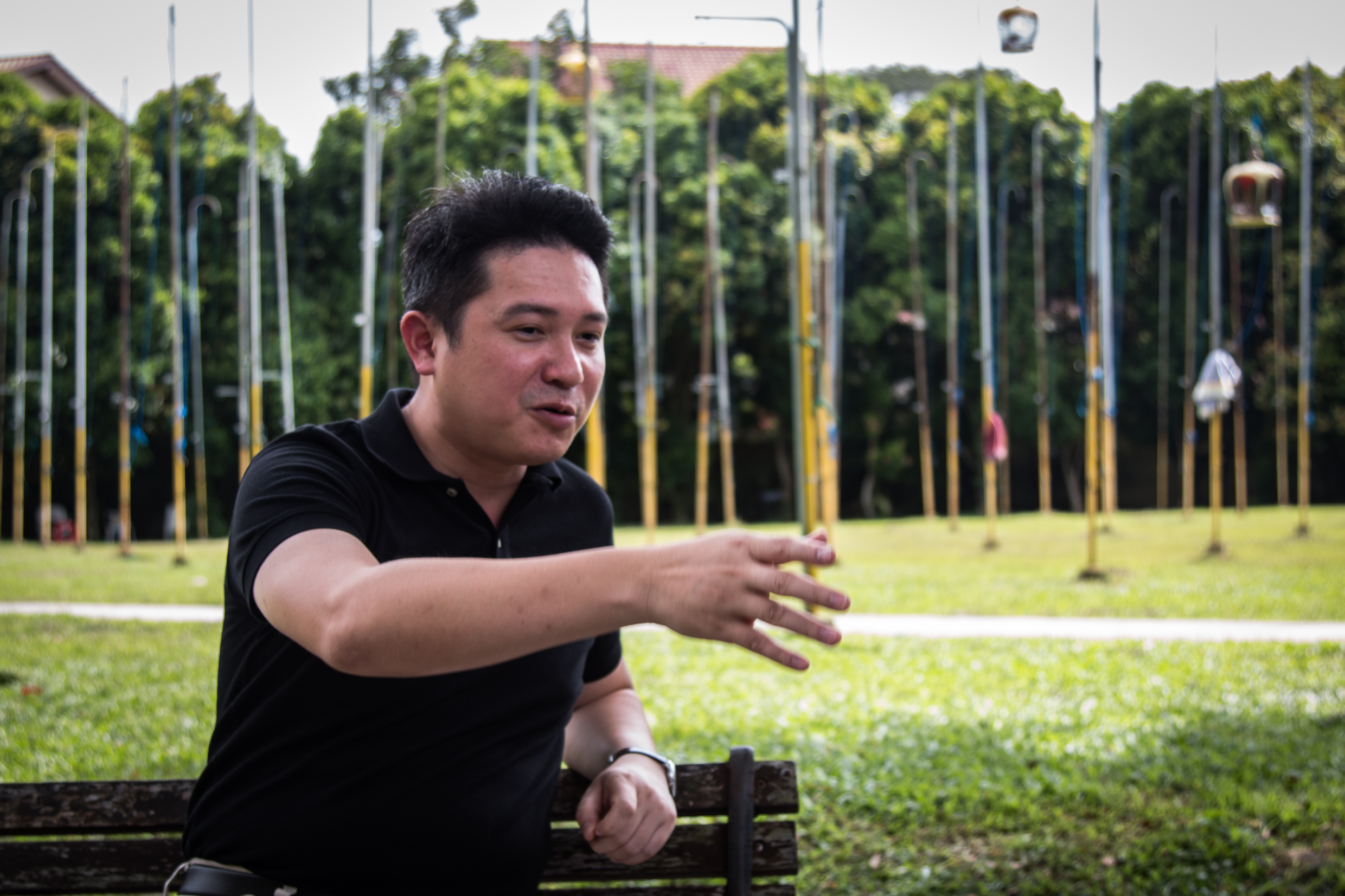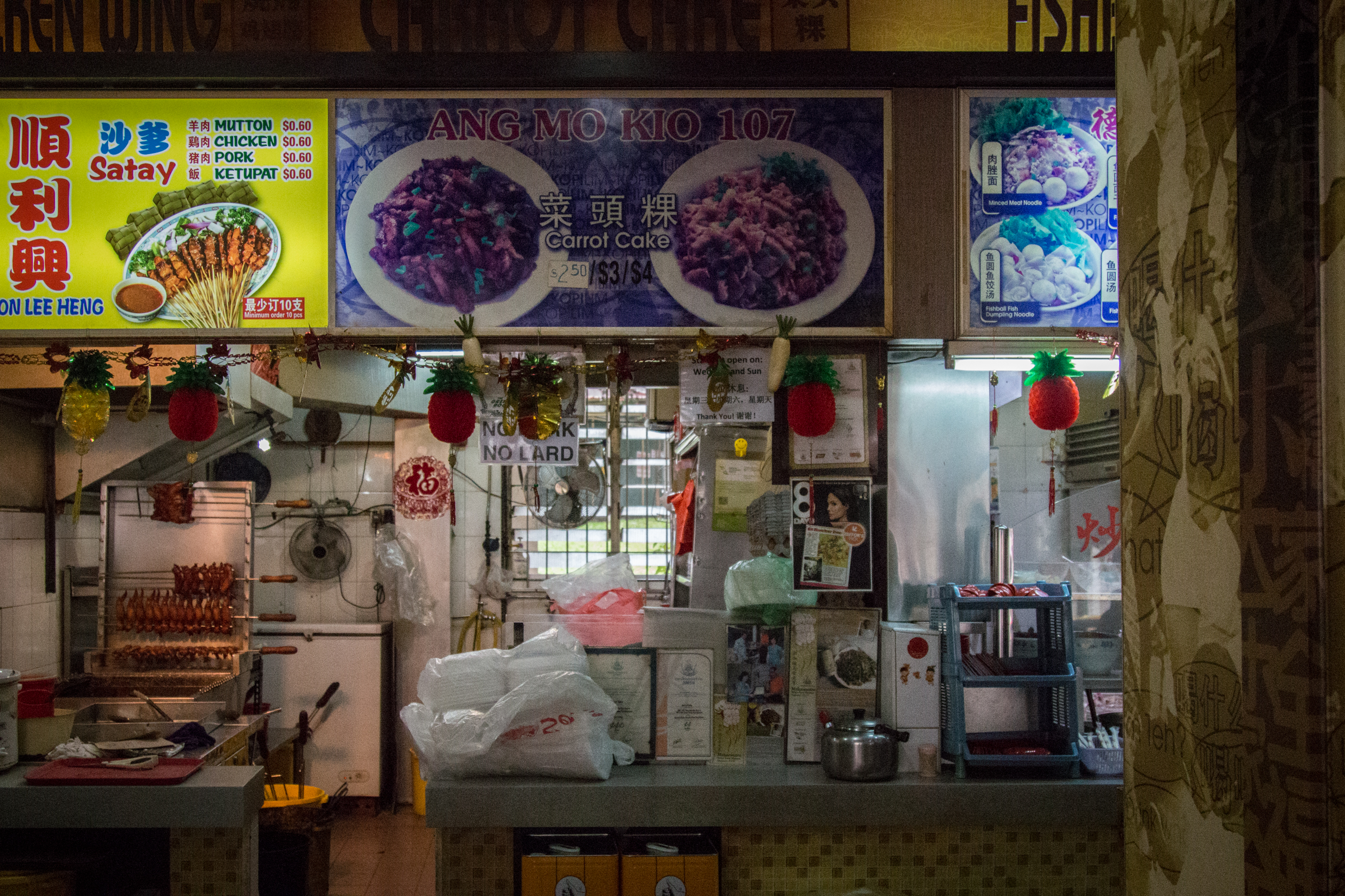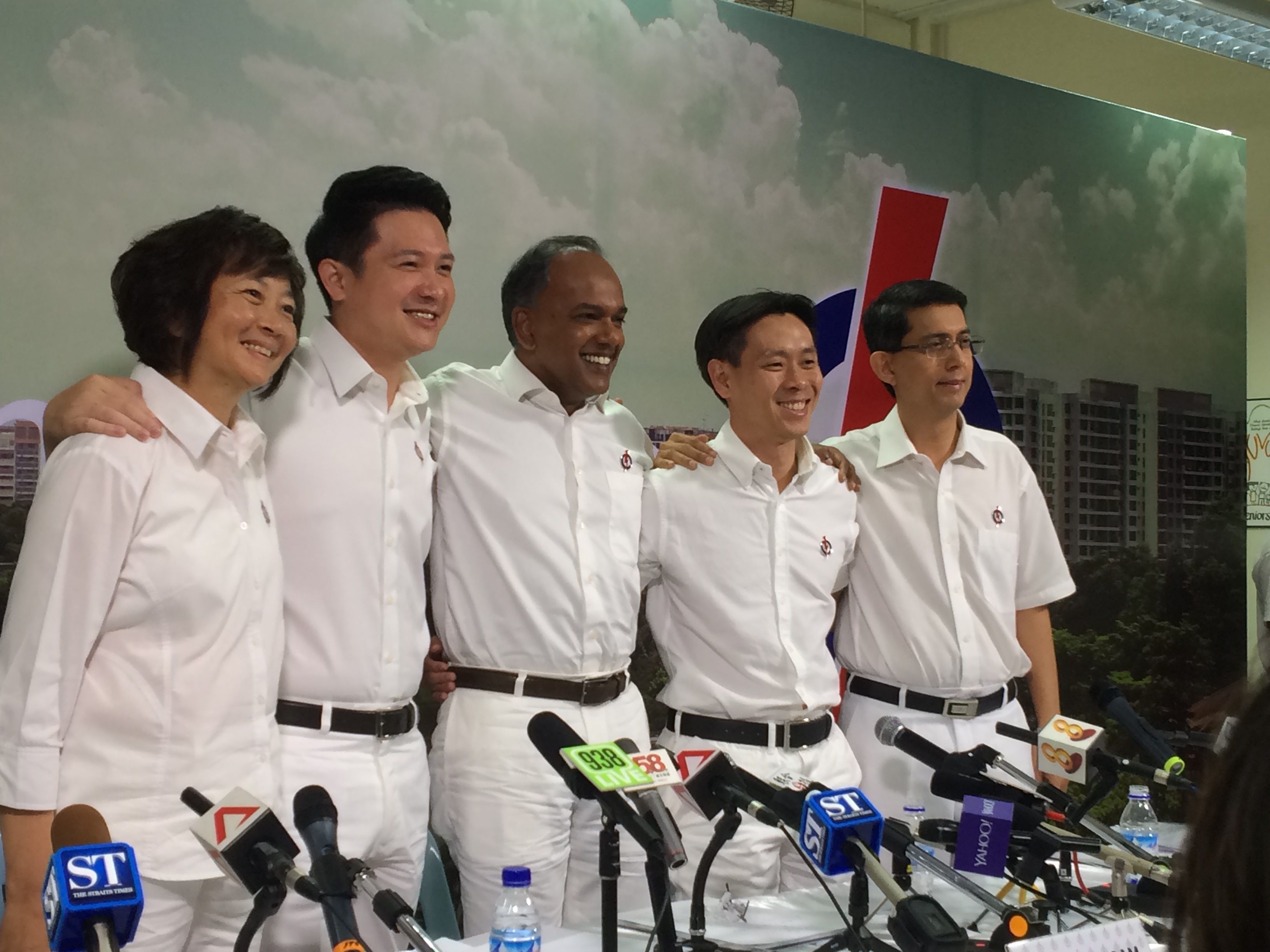Henry Kwek, Member of Parliament for Nee Soon GRC, had already walked the whole of his Kebun Baru constituency twice.
In fact, the first-term MP is now on his third tour around the area that is known by many Singaporeans as the Ang Mo Kio/ Upper Thomson region.
The 39-year old businessman took over veteran MP Inderjit Singh's ward in the last General Election (GE) and appeared to have won over some of the residents with his industrious attitude on the ground.
Kwek must be one of Kebun Baru's biggest fans -- ask him anything about its history and Kwek will pepper you little-known facts and anecdotes about the place like a tour guide.
Wonder why the flats in Kebun Baru are so spacious? Kwek has the answer -- "Kebun Baru is very hilly", he says, and as the flats were "built on hard rock", there was "a wider distance" between the flats. Kwek added that the benefits enjoyed by the residents is that there is a "lot of greenery and space in between".
If you have more than five minutes with Kwek, he will enthusiastically whip out his Kebun Baru map, and tell you the history of how Kebun Baru "used to have a quarry".
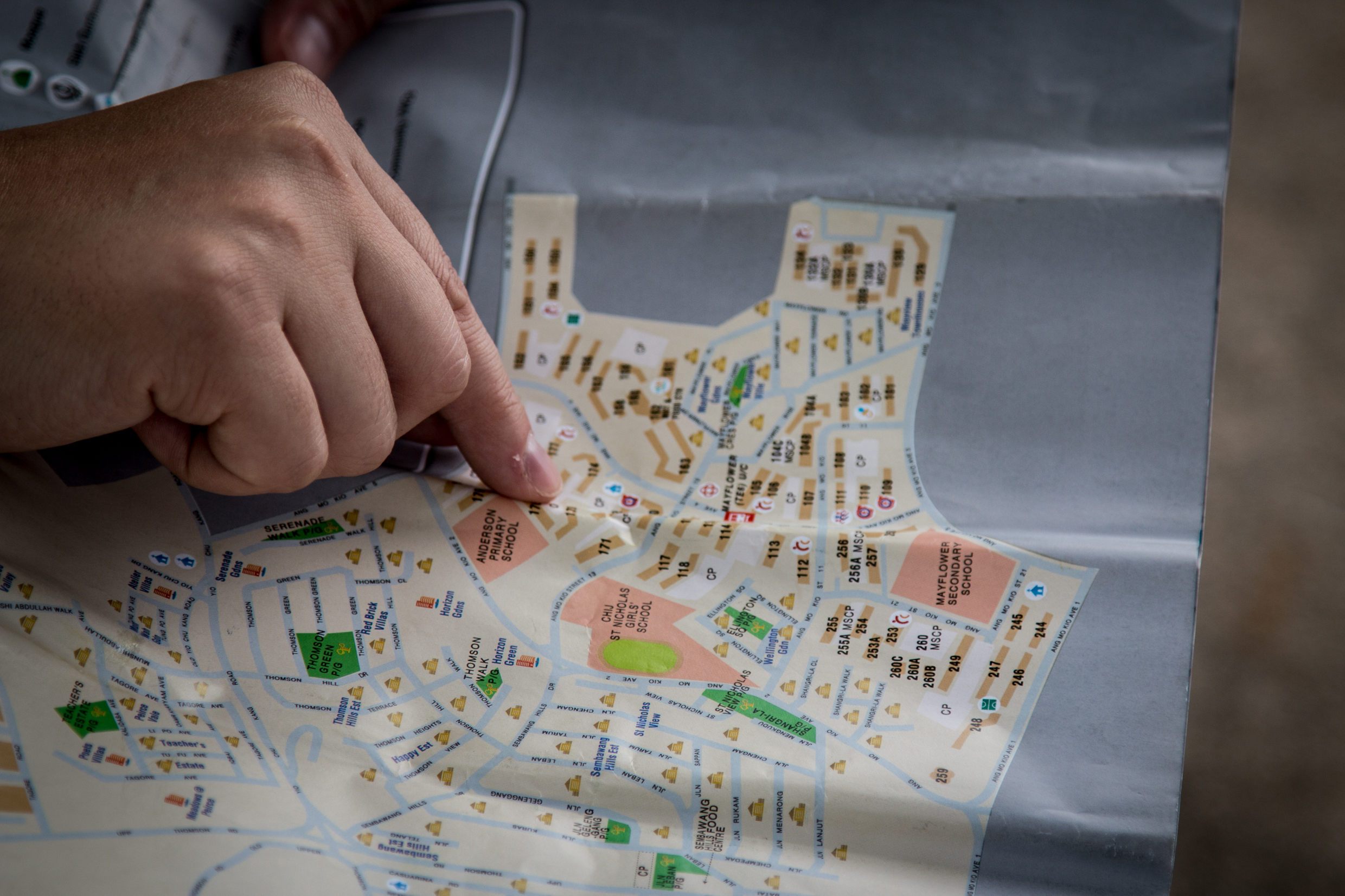 Map of Kebun Baru. Photo by Ng Yi Shu.
Map of Kebun Baru. Photo by Ng Yi Shu.
Luckily, Mothership.sg had more than five minutes with Kwek, so we went beyond talking about Kebun Baru. We discussed Kwek's priorities as an MP, gossiped a little about Minister K Shanmugam, and addressed an important question - whether he is a cat or dog person.
Kwek's maiden speech and his priorities as an MP
In his maiden speech, Kwek spoke about making Singaporeans "masters of machines", calling on the Ministry of Education and SkillsFuture to "critically examine" the education system and prepare them to do what machines cannot do, such as innovating and communicating complex ideas. You can read his full speech here.
1. So we ask him: How long did you take to prepare for your maiden speech? What do you intend to convey in your speech?
HK: "I probably spent a few months to do research, to ask questions, to talk to people and test the ideas out before I felt I was ready to present it to Parliament.
Well, to me the mark of a good MP is somebody who is able to confront the major anxiety the people of the time feel.
And in the last few months when I talk to people I realise there’s this increased anxiety about how we can keep Singapore - how we can preserve what matters in Singapore in the face of hyper competition brought about by globalisation, and in the face of disruption brought about by technology. So that’s why I thought it was important to address this concern, and to propose some solutions."
2. Your speech mentioned about some companies who disrupt industries - like Uber. Do you foresee disruptors emerging locally?
HK: "I certainly hope that we can grow companies that are capable of disrupting global businesses, because it’s going to come our way anyway.
So we might as well be the ones who advocate for it, grow such companies, nurture such companies, and they can then create good jobs in Singapore.
Barclays’ president recently said that the banking sector was facing a Uber moment. In the next 10 years he expects the banking industry to shed 20 to 50 percent of jobs. And just this year, the World Economic Forum shared that the top 15 economies are expected to shed 7 million jobs in the next five years because of technology issues. So it is coming. What do we do about it? Are we ahead of the curve? Do we wait for it to come crashing (down) on us?
I think that’s what we’re concerned about, how we can prepare for it."
3. Do you see yourself as a grassroots MP, or do you see yourself as an advocate for a certain issue or topic? Is there a specific type of issue that really resonates with you?
HK: "I think that because of my background I have a decent understanding of economics and business, and how the world works - so I’ll be speaking up on those issues, on how we can make Singapore relevant, or rather, how Singapore can stay relevant.
I think, being a parliamentarian also means that you have to speak up when things matter, when the situation requires it.
One of the deepest impressions being in Parliament so far is that I realise that Parliament is an important place for society to come and do some moral reflection. There’s this beautiful saying that you should keep your eyes on the stars and keep your feet on the ground. So what it means is that you should constantly reflect so that we can strike a good balance between idealism and pragmatism.
So in Parliament, what we do is that we encode the principles, we affirm into laws; at the same time we must also, when necessary, question the judgement the government makes.
But the reality is that the principles we affirm and the judgements we make sometimes collide in real life - so, when that happens, questions come out, some discomfort comes out, and to answer these questions, we have to revise the judgement we make, or we have to reconsider the principles we uphold.
This back and forth, between the world of action and the realm of reasons - is what is moral reflection. So I think that’s the key role played by Parliament. So in that context, my role as a parliamentarian means that when the situation merits it, I must speak up, because we all contribute to the moral reflection of society."
4. Are there any pet issues or topics you would be talking about, especially during the Committee of Supply debate?
HK: "In parliament, I will continue to talk about how we can make sure Singapore remains economically relevant. In my maiden speech I talked more about the new economy - I think during the CoS debate I’ll probably talk about the mainstream economy. I’ll also talk about culture in general, especially youth - which I care a lot about. But being an MP means (roles) beyond a parliamentarian - what we do in the constituency also matters a lot.
In Kebun Baru I hope to do a few things in this term - one is that I hope that we can restore the kampung spirit, because home is people and not just a place. I also hope that I can equip and empower all our grassroot leaders to become social workers, so that we can do a better job to help the needy. Specifically, I want to invest more in young parents who are needy - that we can help them break free from their problems, I think that’s extremely important."
5. We understand that CPF blogger Roy Ngerng's dad operates a carrot cake stall in your constituency. Have you visited it or tried the dish?
HK: "Yes, I have tried the carrot cake and it tastes good."
Kwek on young Singaporeans
6. Regarding this idea of Singapore being more global and competitive, while at the same time maintaining the grassroots community - what will you say to young Singaporeans who feel rootless in Singapore? How would you advise them?
HK: "We should prepare our people to succeed anywhere in the world, but make Singapore worth a place for them to stay. We should make sure our people are able to succeed wherever they are - but at the same time as a society we should also make it worthwhile for them to feel that Singapore is a home. That sense of connection - we must invest in our own society so that people will feel this.
I think that youth - the millenial generation - they are probably the first generation in human history, to, from a very young age, see the world in an completely unfiltered manner because of the Internet. So many of the millenials I meet are hyperconnected to one another; they know what’s what, they can sense sincerity and when sincerity is lacking.
They are also very idealistic. Now, I think what our society should do, is to trust our young men and women. Trust that they know what needs to be done, and equip them largely on their own terms, to define their life the way they want to define it. In a sense, it means instead of telling them this is important, we should just share with them the context, and trust that they can organise themselves; and when they organise themselves around many purposes - and I’ve seen many many wonderful causes that come from them, we equip them to succeed."
7. In his recent Straits Times commentary, Kishore Mahbubani, Dean of Lee Kuan Yew School of Public Policy, said that "youth here lack idealism". Do you think that youth are idealistic?
HK: "Well - I would say that I’ve met many many idealistic youth. So, I’ll beg to differ from Kishore."
Kwek and his wife
8. How did you spend your Valentines’ Day before entering politics?
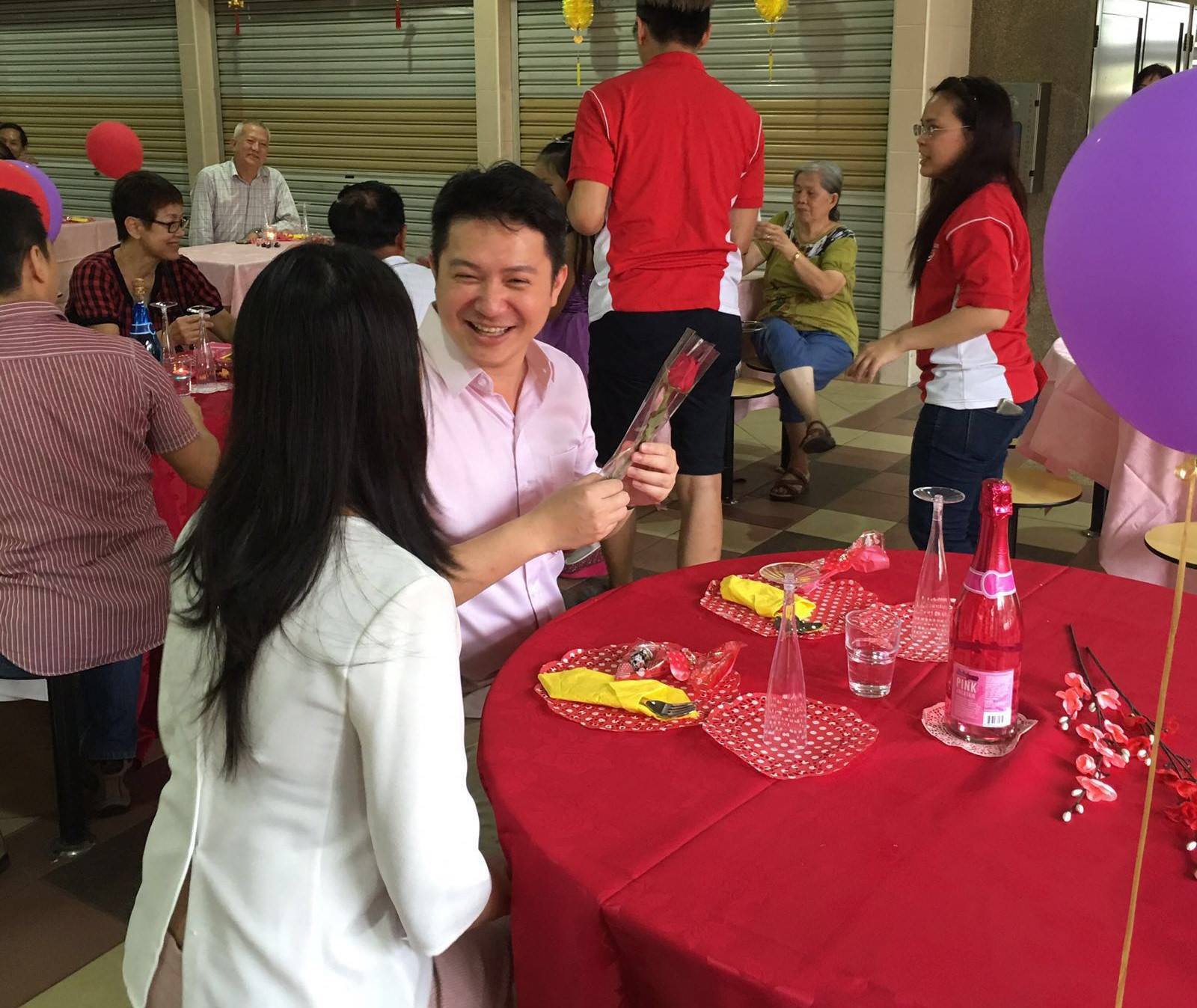 Source: Henry Kwek Facebook
Source: Henry Kwek Facebook
HK: "I think my wife and I, we’re both very involved in the community; she does some community service as well, so for us, time together just to ourselves, free from time pressure is quite rare. For us, being able to spend the night by ourselves, is a real treat. So we try to grab that time and treasure it, regardless of whether it is Valentine’s Day or not."
9. Do you consider yourself to be a romantic?
HK: "I wish I could be more romantic."
10. You mentioned about spending some time alone with your wife; what are the things that you guys enjoy doing together?
HK: "My wife loves to cook, and I enjoy her cooking. Sometimes we’ll go shopping for ingredients."
11. How do you rate her cooking skills?
HK: "Every husband rates their wife's cooking skills as 10/10. Or rather, every loving husband."
12. Besides cooking, what other things do you like to do together?
HK: "Because of our hectic schedule, the nature of the activity is secondary now. What matters more is quality time that we can really share with each other."
13. Was your wife nervous or concerned about you when you entered politics?
HK: "Not at all - she was very supportive - she believed doing what I believed was more important than the outcome. So the outcome was secondary to her - what was more important was doing what I believed was the best."
14. Did you have to convince her, before you joined the PAP?
HK: "I’m very fortunate that my wife is supportive - so in that sense, she believed I should pursue what I think is (the) greater good. Supportive means that there are certain tradeoffs you have to make in your personal life."
On Home Affairs and Law Minister K Shanmugam
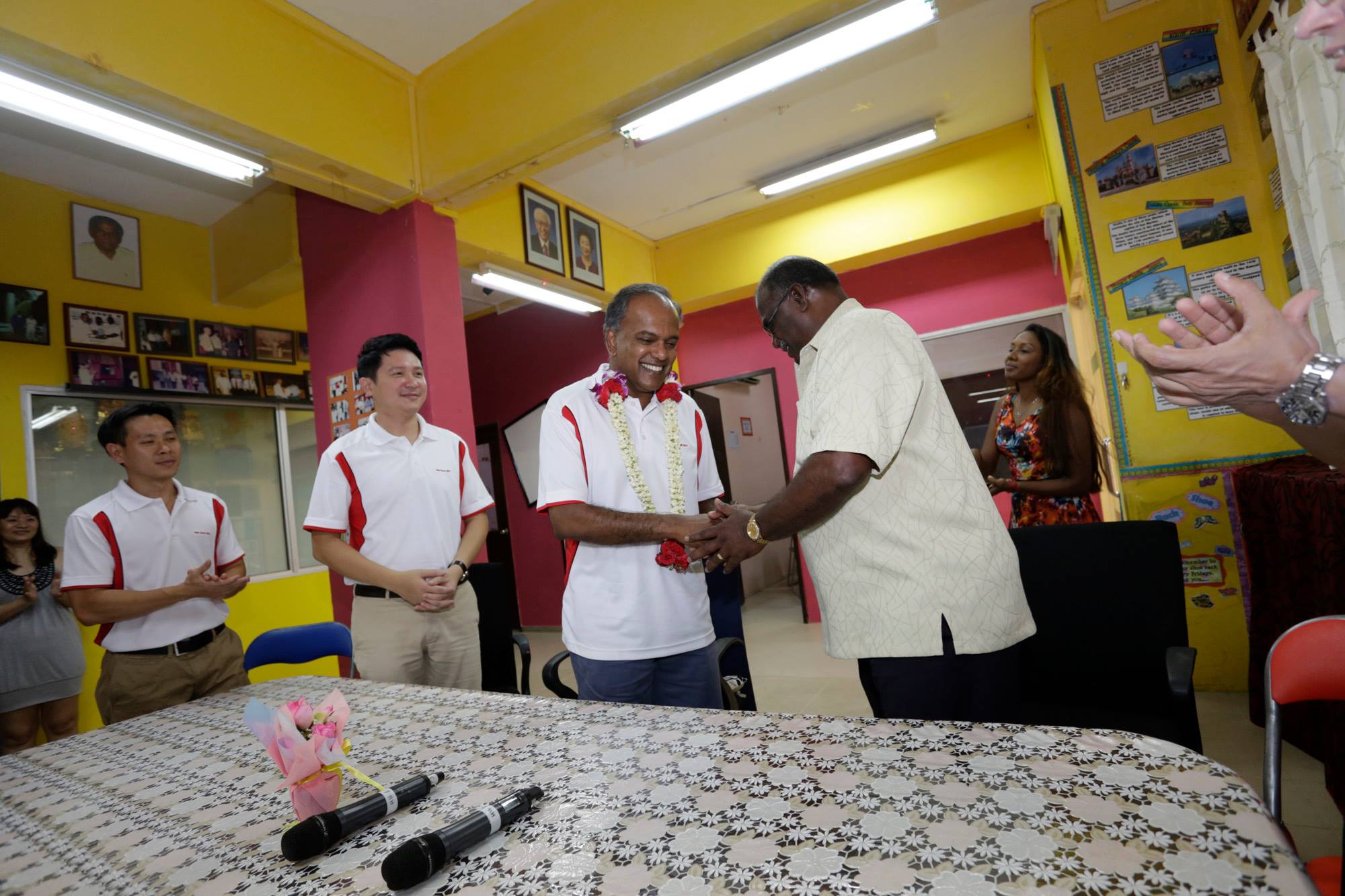 Source: K Shanmugam Facebook page
Source: K Shanmugam Facebook page
15. You have been helping out with Minister Shanmugam for a number of years - and the minister has been in politics since the 1980s. What is something that the public does not know about the minister?
HK: "I’m not sure many people know this, but Minister Shanmugam practices yoga and meditation. He inspired me to do the same - so I try to meditate daily.
Minister Shan has been meditating for many years."
16. So how did he convince you to start? Did he just come to you and say ‘Henry, I think you need to meditate more’?
HK: "It was more like - because we’ve worked so long together, we do ask him why he does that, and he shared with us; a few of us, including myself, were convinced, so that’s how we got started."
So the whole Nee Soon GRC team...
HK: "No no. But I personally find it very helpful because ours is a high pressure job, where there’s a lot of things coming at you from different directions - and being able to be composed under pressure, and be at peace with oneself is very important."
17. You spent much time with Minister Shanmugam - what did you learn from him, and what is it that you admire about him for you to continue to volunteer with him for a while? Was he the minister who asked you to enter politics?
HK: "Yes, he was the minister who asked me to join politics - and I learnt quite a lot from the minister.
Composure under pressure; doing one’s duty. I also learnt, observing him in action, that justice can be tempered with mercy, and that fairness can be strengthened with compassion."
18. Did you take a lot of convincing?
HK: "I think, during our introduction - he asked me twice, before I felt it was the right time for me to join."
19. So he asked you twice - which means you said no to him the first time. How do you say no to him?
HK: "He’s a very persuasive man. I think the desire to serve was always there; the question here was timing. What needs to be done needs to be done. Do you feel that there’s something you can meaningfully contribute, and therefore you go in? It’s important to understand why you join politics, very clearly in your mind, before you make that step, and for me I needed a while to decide what were the changes I wanted to see."
20. How long did he court you for?
HK: "I wouldn’t use the word ‘court’. It was over several years."
21. At what point did you decide you were ready for politics?
HK: "I would say that because I was very involved for a few years already, by the last two or three years, I was comfortable with the possibility. I think the government’s policies have shifted, in being a more inclusive and diverse country and I believe it was the right time to step forward."
22. Okay, one last question. Do you see yourself as an animal person?
HK: "I would say that I’ve always loved animals. I’ve always had pets since I was young; I currently have a Japanese Spitz called Niuroumian (Beef Noodles)."
 Henry Kwek's pet dog, Niuroumian
Henry Kwek's pet dog, Niuroumian
22. Important question for the Internet - are you a dog or cat person?
HK: "I’m a dog person, but I don’t mind cats."
Top photo by Ng Yi Shu.
If you like what you read, follow us on Facebook and Twitter to get the latest updates.
If you like what you read, follow us on Facebook, Instagram, Twitter and Telegram to get the latest updates.
